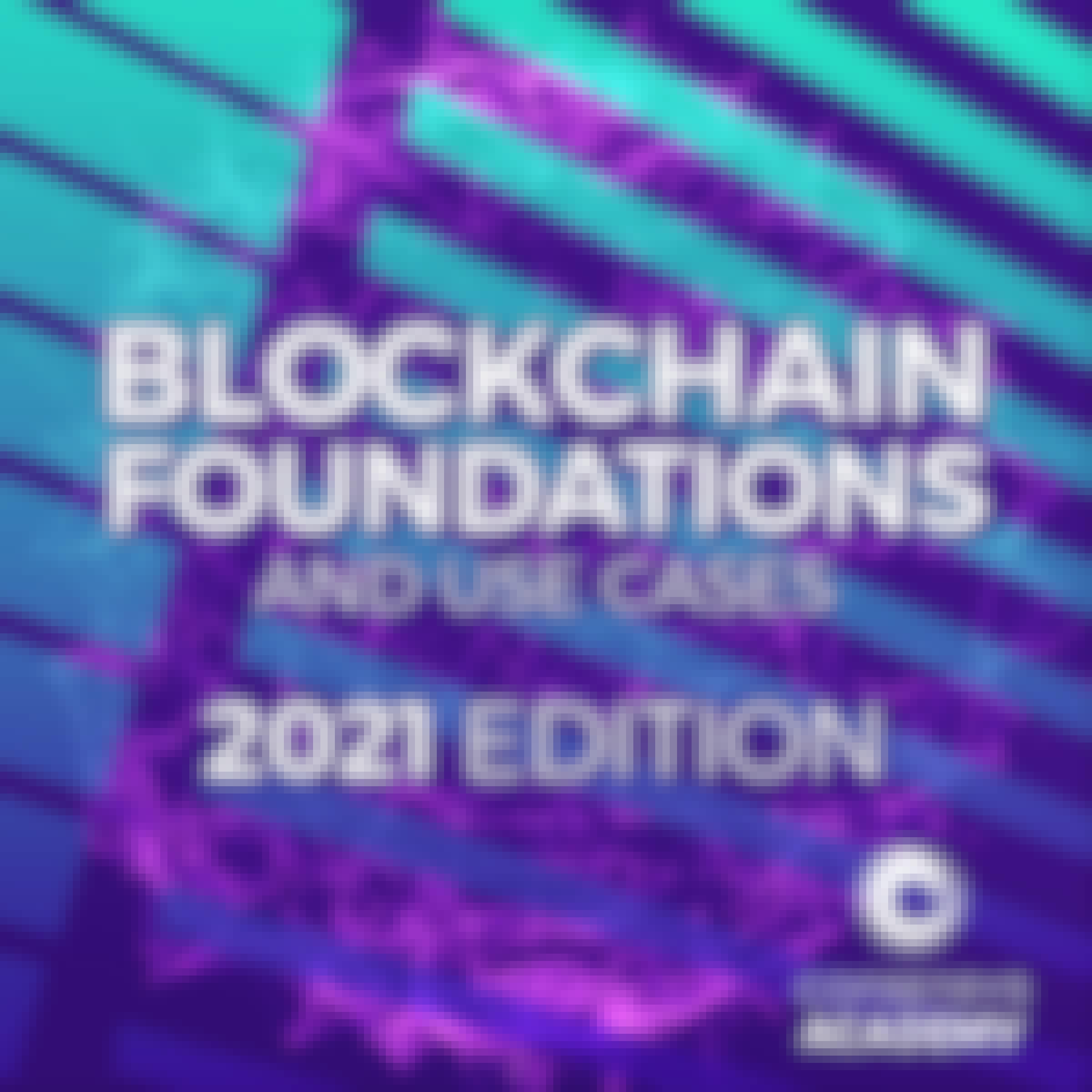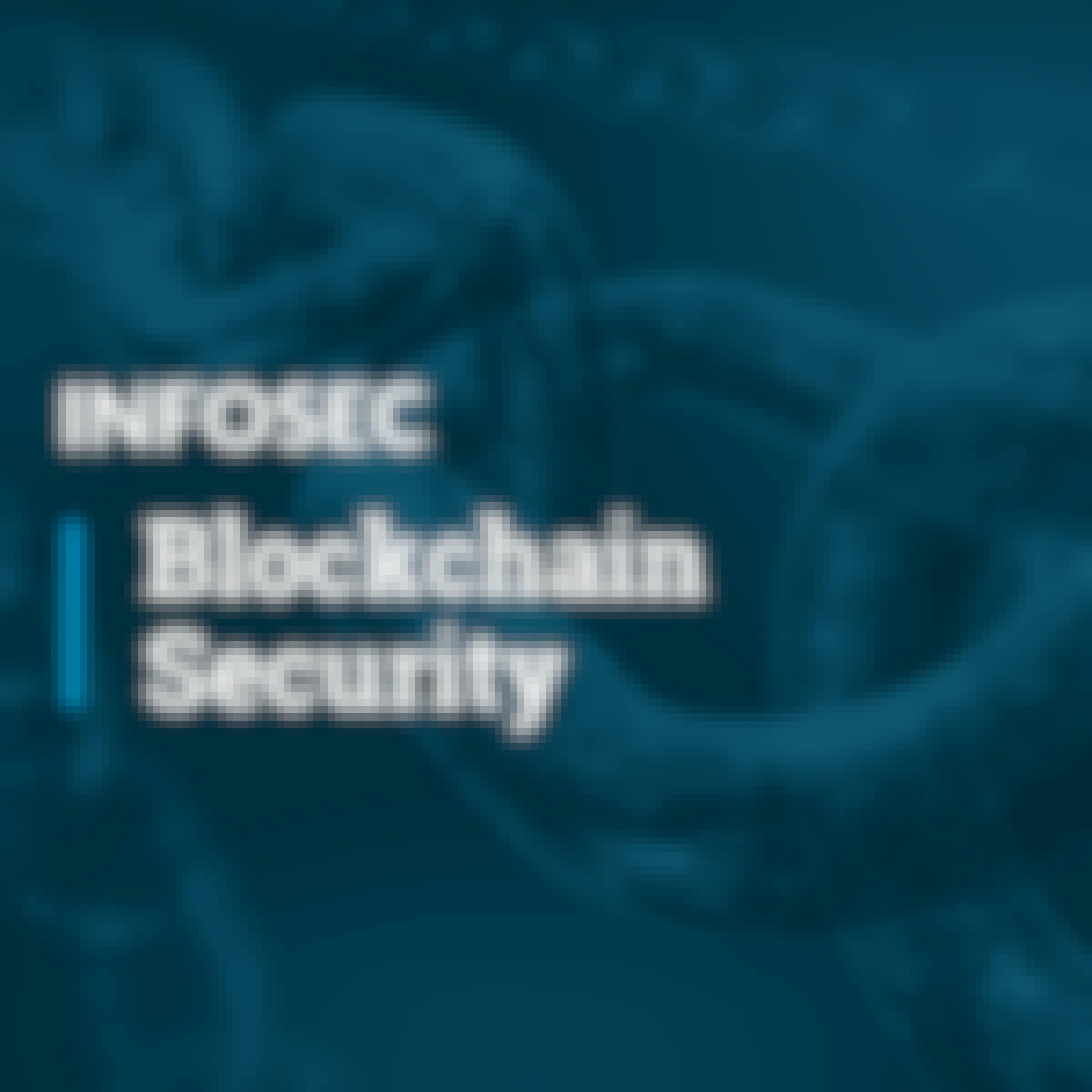Filter by
SubjectRequired
LanguageRequired
The language used throughout the course, in both instruction and assessments.
Learning ProductRequired
LevelRequired
DurationRequired
SkillsRequired
SubtitlesRequired
EducatorRequired
Explore the Ethereum Course Catalog


Skills you'll gain: Blockchain, Digital Assets, FinTech, Financial Systems, Emerging Technologies, Payment Systems, Business Transformation, Distributed Computing, Security Assertion Markup Language (SAML), Identity and Access Management, Innovation, Contract Management, Business Process Automation, Automation

Skills you'll gain: Blockchain, Digital Assets, FinTech, Payment Systems, Digital Transformation, Emerging Technologies, Financial Systems, Identity and Access Management, Financial Services, Empowerment, Contract Management, Governance

Skills you'll gain: Digital Assets, Blockchain, Emerging Technologies, Business Transformation, E-Commerce, Business Modeling, Interoperability, Distributed Computing, Cryptography, Scalability, Governance

Skills you'll gain: Programming Principles, Development Environment, Integrated Development Environments, Computational Logic, Data Structures, Software Development, Computer Programming, Data Management, Debugging, Arithmetic

Skills you'll gain: Blockchain, Transaction Processing, Event-Driven Programming, Front-End Web Development, JavaScript Frameworks, Development Environment, Web Development, Web Applications, Program Development, React.js, Emerging Technologies, Application Development, Javascript, Application Security

Skills you'll gain: Google Cloud Platform, Firewall, Data Maintenance, Cloud Infrastructure, Virtual Machines, Network Monitoring, Cloud Computing, System Configuration, Data Storage Technologies, Blockchain, System Monitoring, Application Deployment


ConsenSys Academy
Skills you'll gain: Blockchain, Cryptography, Interoperability, Encryption, FinTech, Emerging Technologies, Distributed Computing, Digital Assets, Business Analysis, Systems Architecture, Transaction Processing


Coursera Project Network
Skills you'll gain: Blockchain, Development Testing, Web Development Tools, Program Development, Application Development, Software Development, Javascript
 Status: Free
Status: FreeSkills you'll gain: Blockchain, Business Process Automation, Digital Transformation, Business Transformation, Business Technologies, Automation, Emerging Technologies, Market Opportunities, Internet Of Things, Distributed Computing, Systems Integration, New Business Development, Needs Assessment, Interoperability, Transaction Processing, Scalability, Data Integrity, Market Trend, Governance
 Status: Free
Status: Free
Infosec
Skills you'll gain: Blockchain, Network Security, Application Security, Security Engineering, Computer Security, Infrastructure Security, Information Systems Security, Cybersecurity, Data Security, Cryptography, Cryptographic Protocols, Secure Coding, Encryption, Vulnerability Assessments, Scalability, Distributed Computing, Data Integrity, Other Programming Languages, Algorithms


Duke University
Skills you'll gain: Blockchain, FinTech, Emerging Technologies, Cryptography, Financial Regulation, Regulatory Compliance, Encryption, Technology Strategies, Business Logic, Payment Systems, Digital Assets, Feasibility Studies, Transaction Processing, Public Key Cryptography Standards (PKCS), Authentications, Distributed Computing, Network Protocols, Scalability


University of California, Irvine
Skills you'll gain: Blockchain, FinTech, Cryptography, Distributed Computing, Transaction Processing, Payment Systems, Emerging Technologies, Digital Assets, Software Systems, Computer Systems, Systems Architecture, Software Architecture, Payment Processing, Network Analysis
Ethereum learners also search
In summary, here are 10 of our most popular ethereum courses
- Blockchain, Cryptoassets, and Decentralized Finance: INSEAD
- Transacting on the Blockchain: INSEAD
- Web3 and Blockchain Fundamentals: INSEAD
- Foundations of Solidity and Smart Contract Development: Packt
- Empowering with web3.js: Web3 Applications: EDUCBA
- Running a Dedicated Ethereum RPC Node in Google Cloud: Google Cloud
- Blockchain: Foundations and Use Cases: ConsenSys Academy
- Solidity for Beginners: Write and Test Smart Contracts: Coursera Project Network
- Blockchain 360: A State of the Art for Professionals: EIT Digital
- Blockchain Security: Infosec















